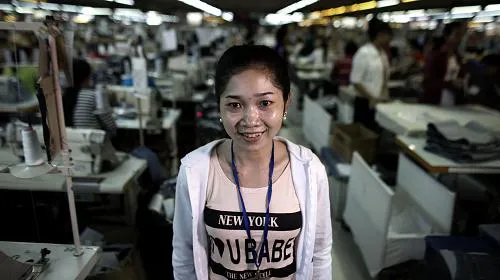WASHINGTON (Nov. 26, 2018) – In commemoration of this year’s 16 Days of Activism Against Gender-Based Violence campaign, CARE is calling for an end to one of the most widespread forms of abuse against women: violence and harassment in the world of work. Governments and employers have six months to forge an agreement with trade unions and adopt a strong International Labour Organization (ILO) Convention – the first of its kind – to end violence and harassment in the world of work.
Just over one year since the ground-breaking rise of social movements like #MeToo, #TimesUp #BalanceTonPorc and #YoTambién, violence and sexual harassment in the workplace has been firmly elevated as a global crisis. Yet, there is currently no international agreement to protect women in the workplace, despite the fact it is one of the greatest challenges for women in the modern age. The ILO Convention provides the opportunity to finally tackle this injustice at a global level and in every country.
“The momentum and amazing work done by grassroots movements like #MeToo has upped the pressure for a legislative solution to end violence and harassment in the world of work,” said Milkah Kihunah, deputy director of global advocacy at CARE. “Negotiators on the new international treaty know the spotlight is on them. The adoption of the ILO Convention in June 2019 would be the first step to build global accountability on violence and harassment at work.”
More than one-third of the world’s countries do not have any laws prohibiting sexual harassment at work – leaving a staggering 235 million women vulnerable in the workplace. From Hollywood actors to domestic and factory workers in places like Ecuador and Cambodia, women are fighting around the world for safety and respect at work.
Violence and harassment at work result in direct costs to businesses and states due to absenteeism, turnover, litigation and compensation. There are also indirect costs of reduced productivity and knock-on effects, which can harm an enterprise’s reputation, image and competitiveness. For example, in Cambodia, where nearly one in three women garment factory workers reported experiencing some form of harassment in the workplace in a 12-month period, CARE calculated there was a national loss of productivity of U.S. $89 million.
CARE’s #ThisIsNotWorking campaign to end violence and harassment at work aims to ensure business leaders also play an active part in the negotiation of a strong and meaningful ILO Convention. Since the campaign launched last March, more than 100,000 people around the world have signed a petition calling on the ILO to create this first-ever global treaty on preventing workplace sexual harassment.
“There is a strong business case for ending sexual harassment at work,” said Glen Tarman, head of global advocacy at CARE. “It makes economic, as well as moral sense, for businesses to support legislation to end violence and harassment in the world of work. Business leaders have a crucial role to play: in their own sectors, in the successful development of an ILO Convention, and in national legislation and regulation that is effective in their own countries.”
A global Convention on ending violence and harassment in the world of work will push governments and employers to place greater priority on recognizing, tackling, and remedying violence and harassment at work.
“We have 6 months to change the narrative for women everywhere,” said Kihunah. “In June 2019, governments, businesses and trade unions have the opportunity to agree on a ground-breaking global treaty: one that sets out to end violence in the workplace and sends the clearest signal worldwide that harassment is never acceptable.”
ABOUT CARE
Founded in 1945, CARE is a leading humanitarian organization fighting global poverty. CARE places special focus on working alongside poor girls and women because, equipped with the proper resources, they have the power to lift whole families and entire communities out of poverty. Last year, CARE worked in 94 countries and reached more than 80 million people around the world. To learn more, please visit www.care.org.
Media Contact
Nicole Ellis, +1-202-560-1791, nicole.ellis@care.org

